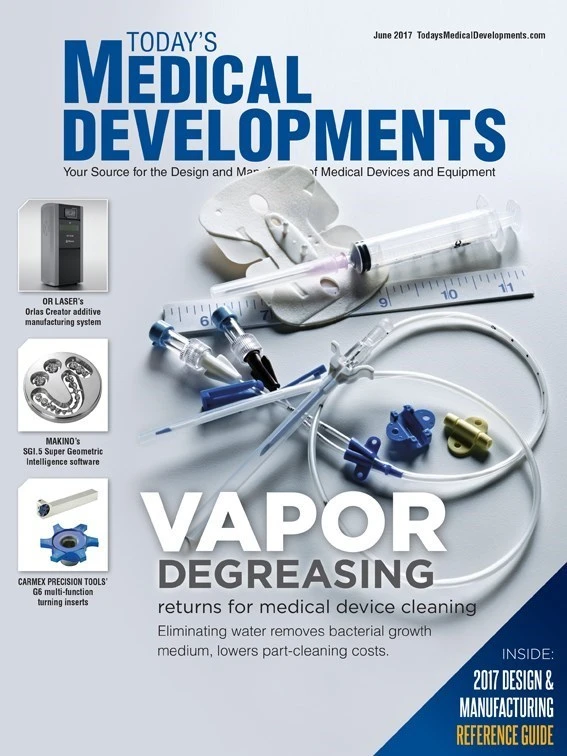Stratasys Direct Manufacturing is collaborating for high-volume 3D printing of custom orthotics with medical equipment supplier Peacocks Medical Group, creator of Podfo orthotics.

Analysts estimate the foot orthotic insole segment will reach $3.5 billion by 2020. Conventional manufacturing processes require long lead times and are unable to cost-effectively produce advanced design elements. Using laser sintering, Podfo produces comfortable, tough, lightweight, thin orthosis customized to patient prescriptions and footwear. Additive technology enables complex geometries with varying features within a single device – eliminating top-covers, glued-on pads, or foams typical of conventional methods.
The design freedom of 3D printing allows Peacocks Medical to create orthotics with individually selected areas of control and flexibility. Podfo uses Nylon 11 for lightweight functionality. www.podfo.com; www.stratasysdirect.com
3D printing – a seamless part of digital manufacturing

SAP Distributed Manufacturing, a collaborative environment that standardizes industrial preproduction and approval, connects engineering design and procurement teams with 3D printing service providers to optimize design and integrate order creation and procurement.
Part of the SAP Leonardo portfolio for the Internet of Things (IoT), SAP Distributed Manufacturing provides a scalable process for manufacturers to collaborate with 3D printing companies, service and materials providers, and original equipment manufacturers (OEMs) in open or private environments. Through integration with SAP S/4HANA, it supports the quote-to-contract process, enriching standard procurement objects with all required details on how to make the part using additive manufacturing (AM).
Dr. Tanja Rueckert, executive vice president, IoT and Digital Supply Chain at SAP, says the environment provides a “standard and scalable business process to intelligently manage design, material, pricing, procurement, and logistics decisions in a collaborative network to drive more effective Industry 4.0 strategies.” www.sap.com
EOS partners with 3YOURMIND, launches AM Part Identifier

Adopting 3D printing still faces challenges, such as determining which parts are best be suited for additive manufacturing (AM). 3YOURMIND, specialists in developing programs that analyze and optimize 3D models before printing, has partnered with EOS to develop the AM Part Identifier (AMPI) tool that will enable companies to digitize the analysis process, making it easier to determine which parts work best for 3D printing.
Users enter basic information about parts in their inventory that need to be produced, and AMPI scans an inventory database to determine which components should be 3D printed. Information input tools about in-house 3D production resources and external industrial 3D printing suppliers customize the recommendations.
To optimize AM use in managing large volumes of new, legacy parts, AMPI can be linked directly to a company’s database to receive updated, real-time reports as parts or advanced 3D print technologies are added. www.3yourmind.com; www.eos.info

Explore the June 2017 Issue
Check out more from this issue and find your next story to read.
Latest from Today's Medical Developments
- Arcline to sell Medical Manufacturing Technologies to Perimeter Solutions
- Decline in German machine tool orders bottoming out
- Analysis, trends, and forecasts for the future of additive manufacturing
- BlueForge Alliance Webinar Series Part III: Integrate Nationally, Catalyze Locally
- Robot orders accelerate in Q3
- Pro Shrink TubeChiller makes shrink-fit tool holding safer, easier
- Revolutionizing biocompatibility: The role of amnion in next-generation medical devices
- #56 Lunch + Learn Podcast with Techman Robot + AMET Inc.





